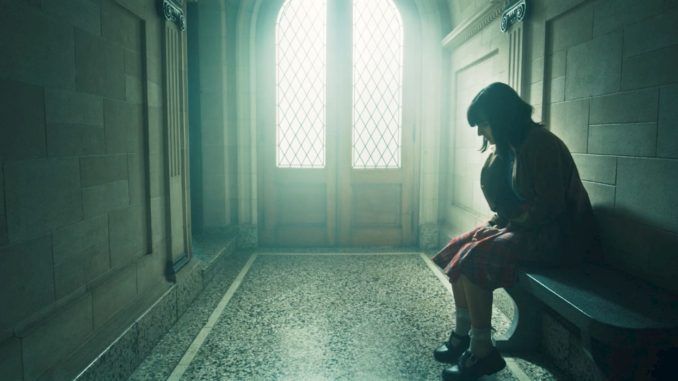“She wielded wisdom like a sword and truth like a flame—her voice echoed through eternity.”
SAINT CATHERINE (2024) emerges as a powerful historical drama that blends spiritual conviction, political resistance, and intellectual strength into one unforgettable cinematic experience. Directed by Greta Gerwig in a bold departure from contemporary themes, the film reimagines the life of Catherine of Alexandria—a brilliant woman of faith who challenged the might of an empire.
Set in the 4th century Roman Empire under Emperor Maxentius, the story follows Catherine (Florence Pugh), a noblewoman turned Christian scholar. Renowned for her intellect and defiant spirit, she publicly opposes the emperor’s persecution of Christians, leading to a dangerous battle not just for her life, but for her soul. In defying tyranny, Catherine becomes both a symbol and a spark of rebellion.

Visually, the film is grand yet grounded. Lavish Roman halls and sun-drenched desert monasteries are brought to life with sweeping cinematography, while intimate candle-lit debates and whispered prayers bring the spiritual stakes close to the heart. The score, composed by Hildur Guðnadóttir, weaves haunting choral textures with quiet moments of stillness.
Florence Pugh delivers a career-defining performance, capturing Catherine’s fierce brilliance, unwavering faith, and growing sense of destiny. The film avoids turning her into a one-dimensional martyr—instead, it shows her as a philosopher, a believer, and a woman torn between fear and calling. As torture looms and miracles unfold, we see not just a saint, but a human being confronting the edge of divine purpose.

By the final act, SAINT CATHERINE (2024) is not just a story of sacrifice, but a meditation on resistance through belief. It challenges modern audiences to consider what they would risk for their truth—and whether intellect and faith can still light a fire in the darkest of ages.


-1751431034-q80.webp)